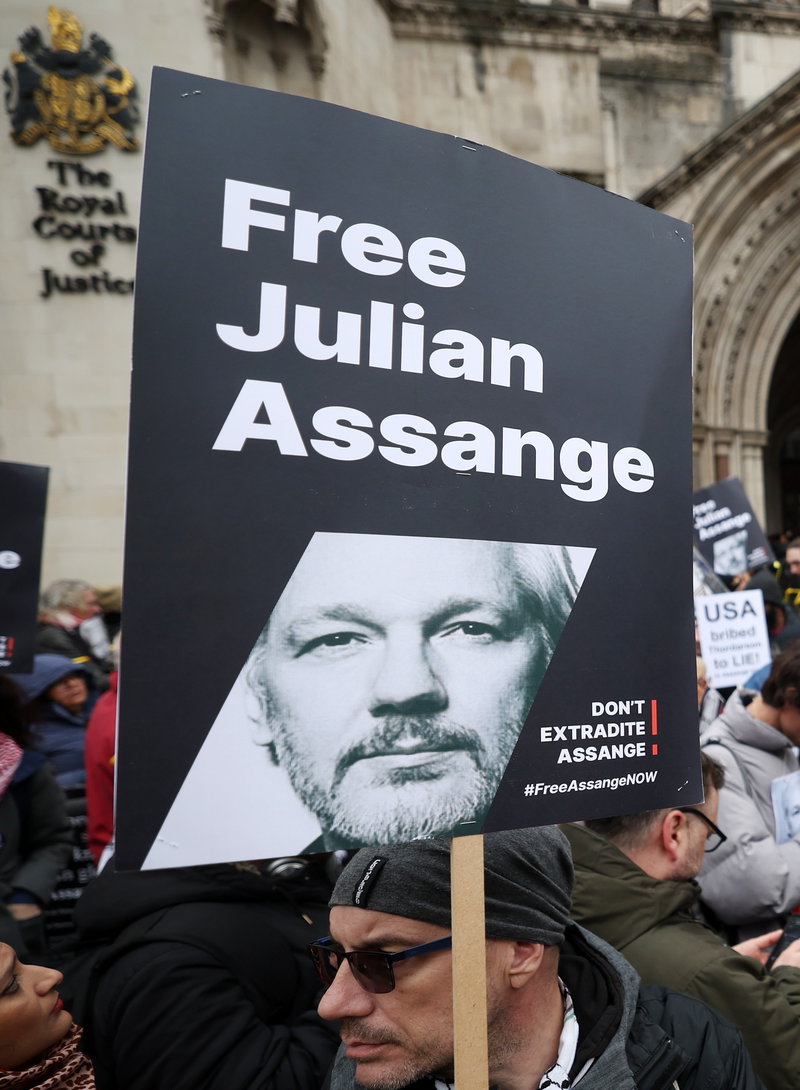Long-term resident
JULIAN A
For a long while, Nils Melzer, the UN special rapporteur on torture, had doubts about the Australian Wikileaks founder Julian Assange, suspecting that he was little more than a ‘shady hacker’. The 2010 rape allegations made by two Swedish women didn’t do much for his image, either. So Melzer refused him UN protection when requested to do so by Assange’s legal team in 2018. They petitioned Melzer again in 2019 and this time round he decided to take a closer look; the look turned into a two year investigation, the (devastating) results of which have been published in Melzer’s recent book ‘The Trial of Julian Assange’. Melzer reminds us that in 2006, Wikileaks started by exposing corruption in Kenya; the banning of Red Cross delegates in Guantánamo; and by detailing thousands of cases of war crimes committed in Iraq and Afghanistan by western troops, including a video taken from an Apache helicopter, which showed the crew having a good laugh as they killed two Reuters reporters and a dozen unarmed Iraqi civilians. As for the rape allegations, Melzer found that the two Swedish women involved, with whom Assange had had brief affairs, went to the police to oblige him to get an HIV test, but the Swedish police seem to have assumed (or decided) that this was an accusation of rape. Over the next ten years, the police investigation never went beyond the preliminary stage (i.e. Assange was never charged) and several prosecutors dropped the case, which was picked up by others who were also unable to find enough evidence to prosecute. Assange left for Britain, only for the Swedish government to demand his extradition. Fearing, reasonably, that once extradited he would be whisked off to a US waiting for him with open jaws, Assange sought refuge in the Ecuadorean Embassy in 2012. Wikileaks continued to publish damning documents, this time on Syria’s Assad regime and the western companies that were doing business with it; even more damningly, in 2017 it published ‘Vault 7’: nearly 9,000 CIA files revealing that the Agency had been practising covert mass surveillance on US citizens and European leaders. The CIA’s director classified Assange as the leader of a ‘non-state hostile intelligence service’ and planned to kidnap or murder him (according to 8 of the 30 officials in on the plot, which was abandoned when White House lawyers questioned its ‘legality’). When the New York Times and the Washington Post published the same CIA documents, Trump decided to prosecute Assange alone. In 2019, the Ecuadoreans handed Assange over to the London police, having confiscated his razor and forbidden him from cutting his hair 3 months earlier. He looked terrible (that was the idea).
What’s more, it has now been conclusively proven that Assange redacted material from his documents that could have put people in danger: contrary to persistent rumours, no one has been injured or killed because of Wikileaks. At his extradition hearings in the UK in 2020, Assange was (unlawfully) placed in a glass cage which made it impossible to confer with his counsel. If extradited, he will be jailed for life, accused of being a terrorist and a spy. In Catalonia, the Assange case is being followed closely: here too, hundreds of people - political leaders included - have been illegally spied upon, and hundreds more are being accused of terrorism for no demonstrable reason. If the British extradite Assange, it will give a green light to liberal democracies everywhere to instantly get shot of anyone who they consider to be a pain in their backsides. And free speech be damned.
opinion


